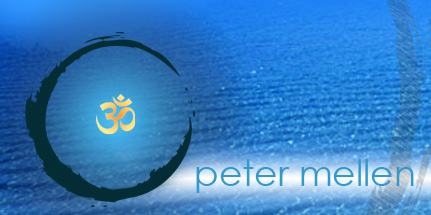Hedonist's Retreat

Retreat is for those who desire to deeply realize the truth of their being and the essence of existence. Retreat offers time to step back from the course of daily life and enter into the Unknown. Adyashanti
Day 1
Today is the first day of a month-long retreat—Peter style, with wine, good food, talking when needed, reading what I want to, and The Daily Show. “You call this a retreat?” you may ask. Yes, because it's about doing nothing; it's about stepping out from the thinking mind; it's about stopping long enough to be quiet. I spend most of my time in silence, but talk when practicalities need taking care of. Linda and I talk from time to time—but for the most part we are just as happy in silence. What I enjoy most is giving her a warm hug in the morning and looking directly in her eyes, all without words. What a difference from, “How did you sleep last night, honey?” as I glance up from the newspaper.
This is no Vipassana retreat—no getting up at 4:00 AM, meditating until your knees and whole body aches, eating watery soup and tea, not even looking at other people. Leave that for seekers who believe that deprivation and hard work is the way to enlightenment. Who said that we had to torture ourselves to find God? Yes, we need to drop old beliefs and move beyond attachment and aversion, but who says we have to flagellate ourselves in the process? Even the Buddha got that one.
The big difference is that I’m not doing this retreat in order to get anywhere. There is nowhere to go, no place to get to. I know that I’m already here/there. I know that all it takes is slowing down enough to see what has always been there—spacious presence. Personally, I can drop in to that awakened awareness a lot more easily if I’m not in pain and major discomfort.
My morning “practice” on the first day of retreat is draining the pond, a physically demanding job, using the sump pump, squeegees, and a bucket to get all the sludge out. At 10:00 I take a break so that Linda and I can listen to Peter Fenner’s CD course on Radiant Mind. In no time we are both blissfully resting in unconditioned awareness. It’s not that difficult, not that dramatic. It’s right here, right now.
Peter Fenner, a spiritual teacher from Australia, has a beautiful approach to awakening, using the mind to transcend the mind. He begins by exploring the obstacles to awakening, naming five main ways we keep ourselves from bliss:
1. Through our attachment to suffering.
2. Through our habitual need to be doing something.
3. Through our need to know.
4. Through our need to create meaning.
5. Through our projections about what unconditional awareness is or isn’t.
Remove the obstacles and what has been there all along is finally revealed.
“What are the main areas in life where you suffer?” Peter asks on the CD.
I start jotting down the first thoughts that come to mind: expectations about being successful, being recognized being accepted. What suffering I create for myself through wanting any of them, because, no matter how successful I am, how recognized I am, or how accepted I am, it will never be enough.
“Why do you think that it’s happening?” he asks.
Because I don’t accept myself as I am, because I’m terrified that I will fall into a dark, black hole if I stop struggling and achieving.
He then asks, “How do you feel about your suffering right now?”
Fine, I realize. There’s nothing wrong with the suffering being there. Who said that identification with form didn’t bring suffering along with it?
Then it’s time for lunch and a nap. No need to answer the phone, no need to respond to e-mails. What a delight. Although I love my friends, it’s refreshing not to have to talk to them—especially since most of what we talk about is the same stuff we’ve talked about for thirty years. (Only later do I realize that it's me who is keeping things from going deeper).
The minute my poor, wretched, exhausted mind starts to unwind and slow down, a sense of spaciousness begins to open up. It feels like my brain has been in a death spin for the past few months, constantly going over scenarios, trying to figure out what to do with the book, worrying about this and that.
Now it’s time for “no thinking.”









0 Comments:
Post a Comment
<< Home